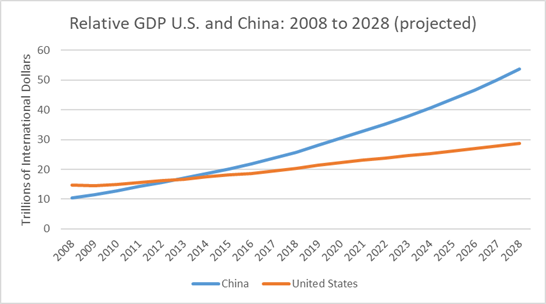China And The US: Who Has More Innovation To ‘Steal?’ – OpEd
By Dean Baker
One of the truly amazing aspects of Donald Trump’s trade war with China is how all the pundits agree that we have a legitimate beef with China over stealing “our” intellectual property. This is true pretty much across the board, even among the harshest critics of Trump and his tariffs. As I have argued almost alone, this one needs a bit more thought.
First, the “our” part of the story needs some examination. The vast majority of us don’t own any substantial amount of intellectual property that is being compromised by China’s practices, Somehow we are supposed to be concerned that Boeing, Microsoft, Pfizer, Disney, and the rest are seeing lower profits because China doesn’t follow the rules they want them to follow.
Sorry folks, these are not the homes teams that we are supposed to root for in baseball. These are huge multinationals that have made their largest shareholders and top executives incredibly rich. The rest of us are supposed to want to stick it to China to make these people even richer?
It’s actually even worse. The simple story is that if China has to pay less money to Boeing et al. for their intellectual property claims they will have more money to buy other things from the United States, like soybeans and whiskey. Tell me again about “our” intellectual property.
The other part of the story that remarkably is always missing from the picture is that the United States is not the only country that spends money on research and development. According to the OECD, China spent 2.1 percent of its GDP on research and development in 2016 compared to 2.7 percent in the United States. While spending in the United States has been flat as a share of GDP for two decades, China’s spending has been rising rapidly.
Add in the fact that China’s economy is already 25 percent larger than the U.S. economy and is on a path to be almost twice as large in a decade, and it should be pretty clear that China will soon have much more innovation to “steal,” if it does not already. (The data in the figure below are taken from I.M.F,. I projected out the 2022-2023 growth for the next five years.)

The point is that China will likely have far more to lose from not having an internationally agreed upon mechanism for sharing the costs of innovation than the United States. If we were approaching this from the standpoint of national interest rather than making the rich richer, the last thing on earth we would be pressing China for is greater protection of U.S. intellectual property. But we know who tends to control debate on public policy issues.
We should need a mechanism for financing research and creative work, but patents and copyrights are archaic and inefficient. We should be looking for more modern mechanisms. I talk about alternatives in chapter 5 of Rigged (it’s free) and there is a more extensive discussion of the relative efficiency of patents and alternatives in a paper I wrote with Arjun Jayadev and Joe Stiglitz.
This column originally appeared on Beat the Press.

